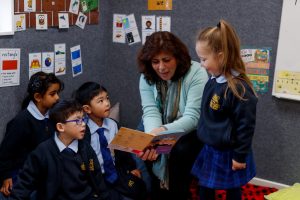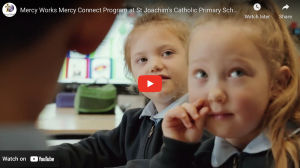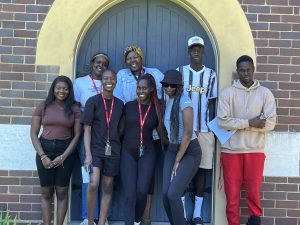
In the vibrant heart of Western Sydney, a transformative mentorship program is quietly shaping the destinies of young Sudanese men and women. The program, formerly known as the Josephite Refugee Mentor Support Program (JRMSP), now proudly bears the name “MPower.
MPower serves as an inspiring framework for mentors and mentees, forging pathways to tertiary education and meaningful employment. Born out of the profound realisation that many young Sudanese were facing daunting challenges after leaving school, the program embodies the Sudanese community’s resolve to create a brighter future for their youth.
In the past, many young Sudanese found themselves at home, jobless, lacking government welfare, and dependent on their parents for financial support. Some had legal issues, others were trapped in unhealthy relationships, and young single mothers were navigating the complexities of parenthood. Often, parents lost touch with their children, with young grandmothers stepping in as caregivers.
Sister Maria Sullivan, a sister of St Joseph, has been a steadfast companion to the Sudanese since their arrival in Australia in 1998, and lived in Mapuordit, South Sudan, for twelve months in 2006. She says that her involvement began with a request for help from the South Sudanese community “because so many of their young people were doing well in school – but when they left school, they would fall off the bridge.”
Deacon John Cinya, Chaplain to the Sudanese community, recognised the need for assistance. In 2017, he turned to Sr Maria and a visionary collaboration was forged as the JRMSP initiative began to take shape. Since that time, a core group of mentees from the original program formed a leadership team and by early 2020, in collaboration with this team of young leaders, it was decided that a website should be established and a new name “MPower” was chosen.
In August 2023, Mercy Connect NSW, as part of Mercy Works, joined forces with Sister Maria and is excited to take on full custodianship of the MPower program from April 2024. Paul Taylor, Mercy Connect NSW Project Coordinator, says
“MPower isn’t just a mentorship program;
it’s a life-sustaining support for young Sudanese people in Western Sydney.
It acknowledges the unique challenges they face and sets out to equip them and their families to transition successfully from school to higher education or meaningful employment.”
Mercy Works is currently evaluating applications for a new wave of mentors to join MPower. Mentees often need guidance to understand and value their rich cultural heritage, fostering pride and leadership within their community. To create a meaningful relationship, mentors are advised to engage with mentees’ families and familiarise themselves with the unique background of their students, including a basic understanding of Sudanese history and geography. This knowledge helps them to recognise the significant differences in the school journey of Sudanese youth compared to those whose parents can read, write, and speak English.
A significant hallmark of this endeavour is its approach of respect and a non-judgment towards cultural differences, to understand the position in which mentees often find themselves—caught between two cultures, two languages, and two sets of social norms. There is a true appreciation of the hardships that some mentees have experienced as child refugees, including separation from family, torture, trauma, language barriers, racism, discrimination, and possible post-traumatic stress.
In addition, some parents may be undergoing further trauma related to the ongoing situation in South Sudan, such as poverty, hunger, tribal conflicts, illness, and pressure to send money home. Many parents may have received little or no education, resulting in a limited understanding of tertiary studies and the demands of higher education.
Despite the challenges, MPower’s goal is to empower every Sudanese student who completes Year 12, inviting applications through School Counsellors. It’s an inclusive program, welcoming young people from all religious backgrounds and distinguished by its commitment to involving parents, especially mothers.
Research indicates that, after completing formal education, young people tend to fall into three distinct and discernible groups.
Some students wish to proceed to University or TAFE pathways and often require facilitation with course selection, enrolling, and managing their time between work and study.
Others choose to pursue a TAFE course or apprenticeship and may require more support in determining their career path without an ATAR.
Lastly, some students decide on the option of immediate full-time employment and may need help in understanding the concept of career progression and job security.
MPower’s focus in 2024 will be on those wishing to undertake tertiary education where the program has proven to be successfully instrumental in providing crucial assistance to mentees and their families in the shift from a structured school environment to self-directed learning.
Mentees are assisted to develop specific skills and knowledge including access to services and resources needed to achieve independence, confidence, and success. This covers help with challenges such as navigating an application, a car insurance claim, connection with part-time employment opportunities and financial support for various educational materials, travel expenses, and internet access.
Mentor Tess Mulveney expounds
“The one-on-one mentoring provides young people with practical and meaningful support during the crucial stage between finishing school and stepping into life as an independent adult.
That might be helping a young person to fill out the complex enrolment forms for university — so they’re not shut out because of administration barriers.”
Throughout the journey, both mentors and mentees are motivated to be open to new experiences and personal growth, forging connections that help to create trust and friendship. Exploring new art, music, culture, or sports together, also provides opportunities to share knowledge back within their own communities, bridging the cultural divide.
Adau, a former mentee, is grateful that her mentors “have continued to support me and all my endeavours.
They have changed my life and future for the better!”
Mercy Works is proud to promote The MPower program, to foster a sense of self-determination and independence among young Sudanese, inspiring them to pursue their dreams and to become role models for the following generations. Through mentorship, MPower is lighting the path to more optimistic, more promising futures.
This article was first published by Mercy Works in the Bilum, December 2023.
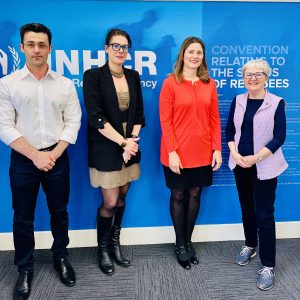

 SHOP
SHOP
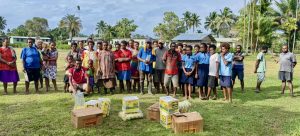
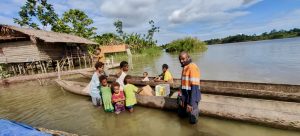
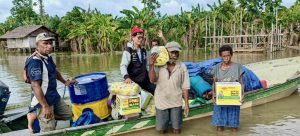
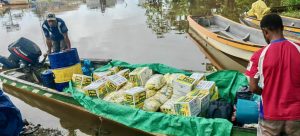
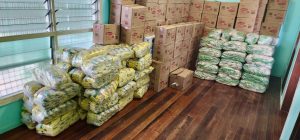
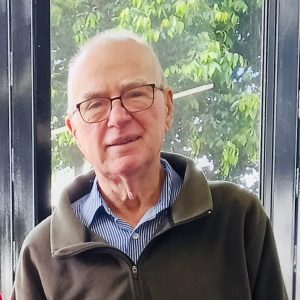
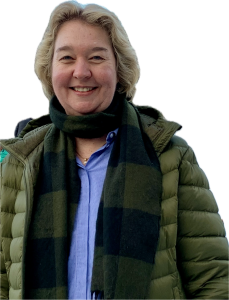


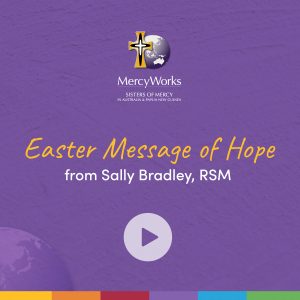

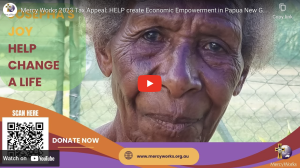
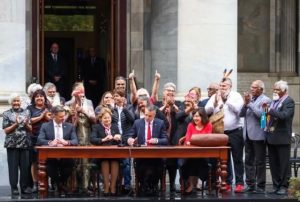
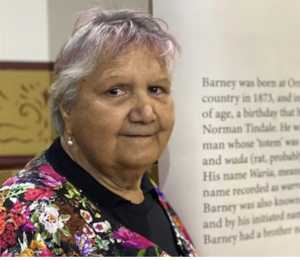
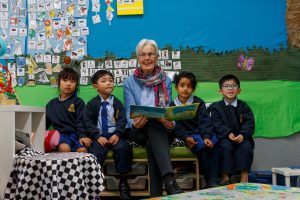

 The Mercy Connect volunteers help with many different aspects of curriculum in the classroom. They work with literacy curriculum, listening to students read, helping them with their writing sometimes with numeracy and other aspects of their work.
The Mercy Connect volunteers help with many different aspects of curriculum in the classroom. They work with literacy curriculum, listening to students read, helping them with their writing sometimes with numeracy and other aspects of their work.